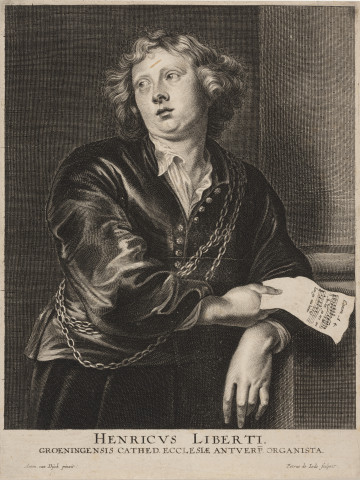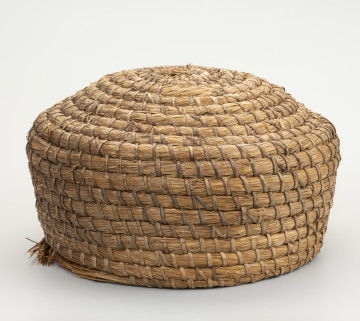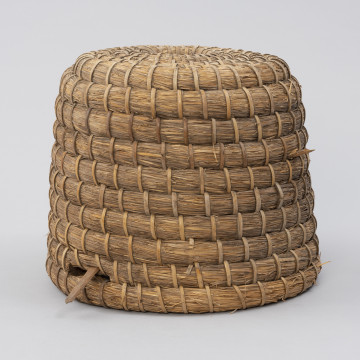
Portrait
circa 1632
National Museum in Szczecin
Part of the collection: Medieval sculpture of West Pomerania
Alabaster is a mineral with unique sculptural properties and aesthetic qualities. Thanks to whiteness and delicacy, it is characterised by transparency and softness compared to a woman's body. It was good at imitating ivory and marble. The popularity of this material was determined by its ease of processing and the possibility of obtaining various sculptural effects. The fashion for alabaster-made objects began in the French-Burgundian court in the 14th century and spread to the Netherlands and Germany. The alabaster figure of the Beautiful Madonna and Child was made in a South German workshop around 1440. The workshop, possibly Württemberg, specialised in producing this type of statue, which is confirmed by similar specimens preserved in museum collections. The sculpture was brought to Pomerania by the Cistercians from Bukowo Morskie at an unspecified time. The cult of Mary is particularly close to the Cistercian monastic formula. Her particular importance as a cult figure in the Bukowo Monastery is confirmed by the fact that almost 100 years later, the sculpture was placed on the main altar in a new setting. The late Gothic polyptych altar made of oak was founded by the last abbot Henricus Kresse just before the dissolution of the Monastery (1535). The beautiful Madonna placed on a pedestal took the central place of the altar among the carved images of saints. She was then given a new Gothic crown and the rank of Queen of Heaven (Regina Coeli). The dedication of the main altar to Mary - the most significant patroness of the Order - is typical of Cistercian foundations.
Kinga Krasnodębska
Author / creator
Dimensions
cały obiekt: height: 60 cm, width: 26 cm
Object type
sculpture
Creation time / dating
Creation / finding place
Identification number
Location / status

circa 1632
National Museum in Szczecin

1965
National Museum in Szczecin

1890 — 1910
National Museum in Szczecin
DISCOVER this TOPIC
Museum of King Jan III's Palace at Wilanów
DISCOVER this PATH
Educational path